07 October 2020
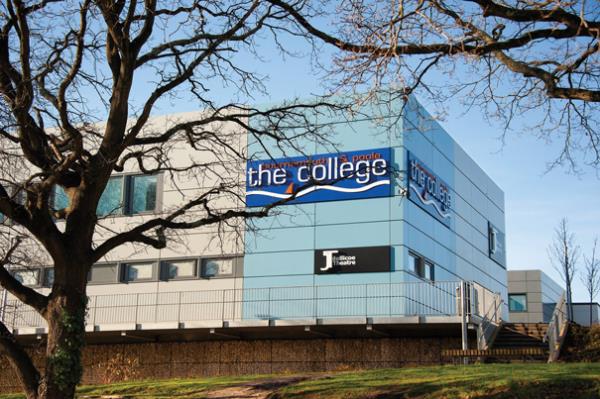
With more than 11,000 students, Bournemouth & Poole College (BPC) is the largest provider of further education and apprenticeships in the region. Its core focus is on work skills, so that students are well placed for their chosen careers.
The college uses a free and open source learning management system called Moodle. Following student feedback, the college decided to modernise its Moodle digital learning environment (DLE) with more engaging features for both staff and students.
Read the full case study28 August 2020
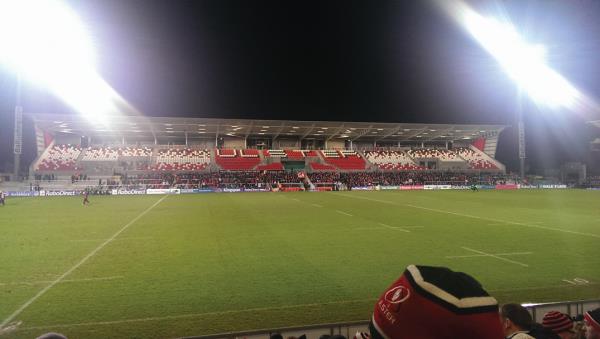
Ulster Rugby is one of four professional teams in Ireland who compete in the Guinness PRO12 Championship and the European Rugby Champions Cup. Kingspan stadium has an overall capacity of 18,200, with four fully covered terraced areas providing seating for up to 9,000 spectators. The state-of-the-art stadium is equipped to the highest standard including professional team facilities, a family area, corporate hospitality, a food village and world-class media suite.
With top-level professional rugby taking place at the ground and matches broadcast globally, Ulster Rugby looked to WiFi SPARK to provide a fully managed and supported Wi-Fi service that included a branded user experience portal, enhanced content filtering, bandwidth control, user data analytics and remote monitoring.
Read the full case study23 July 2020
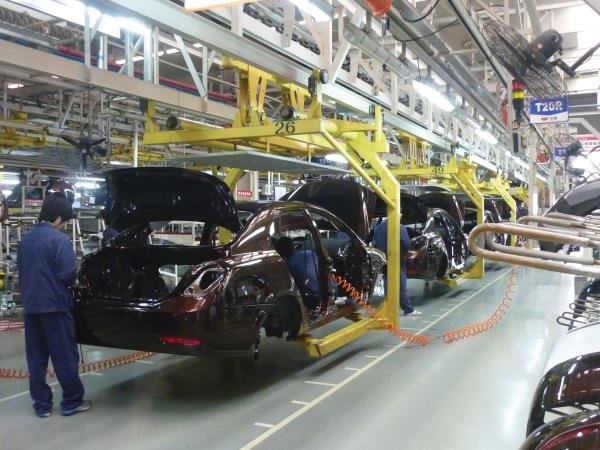
DACC Europe is a well-established structured cable and infrastructure provider established in 1996 in Docklands, London, enjoying year on year growth and being fully independent.
It has successfully managed projects from the relocation of an investment banks’ office in Paris to the design and installation of a complex 30,000 port structured cabling system within a large data centre.
Read the full case study23 July 2020
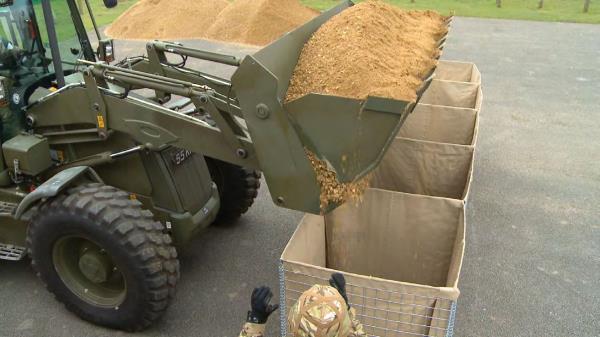
Hesco manufactures, designs and deploys defence barriers in several countries around the world. It is renowned for its rapidly deployable Concertainer system that is used for both flood control and military fortification worldwide. Camp Bastion, the former British Army headquarters in Afghanistan, was named after the company and its iconic barrier system.
Operating from both the UK and US, and with around 300 staff, the company has customers in various parts of the world, including Europe, Asia, America and the Middle East.
Read the full case study09 July 2020
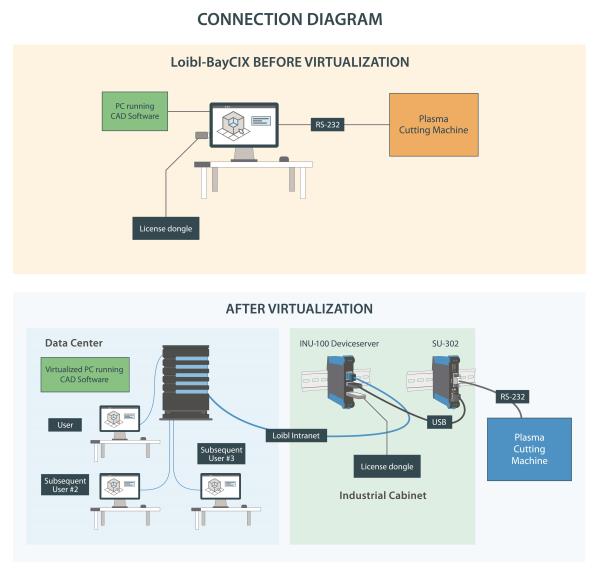
Loibl Förderanlagen GmbH from Straubing in Germany, is a world-wide leading manufacturer and seller of solutions for transporting bulk material.
From single components to complex systems, Loibl regularly modernises all areas of its operations. And in 2018 this included upgrading laser, plasma, and gas cutting system controls, as up until then, industrial PCs with older operating systems served this purpose.
In order to future-proof and upgrade efficiently, Loibl decided to virtualise its control units. Its current process entailed a Messer Group GmbH steel cut machine transmitting the control commands to the cutting machine. The control units transmitted the commands via RS-232 interface, with the control unit and cutting machine communicating by means of a serial interface.
Read the full case study21 April 2020
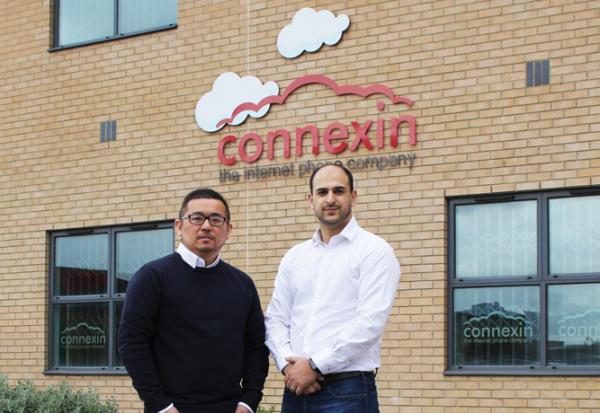
A partnership between Hull City Council and smart city specialist Connexin has optimised waste collection from Public Waste Bins across the city.
The city of Hull, also known as the slightly more grandiose Kingston upon Hull, is a port city located in the heart of England’s Northern Powerhouse.
The city attracted the title of UK city of culture 2017 and was assigned £32.8m for cultural events and to improve the city’s’ public spaces.
Read the full case study21 April 2020
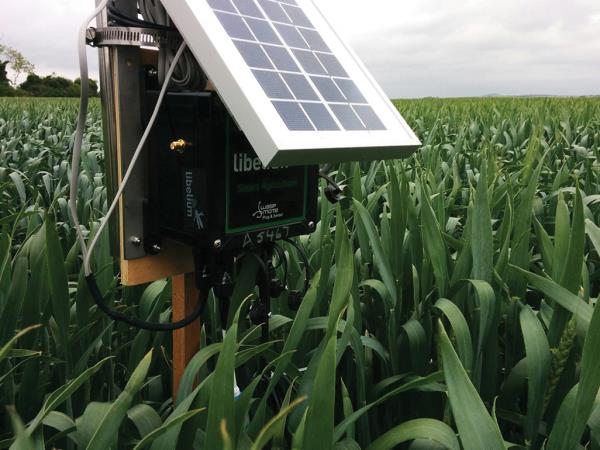
This project was deployed in nine farms across the UK, from Riverford Organic Farms in Devon to Spen Farms run by the University of Leeds
Smart agriculture and organic farming are two trends strongly linked. In the United Kingdom are walking hand in hand for a while to improve competitiveness of small producers.
Senseye, a UK software company focused on prognostics and conditions monitoring, decided to develop a project with organic farmers to increase their crops and make them sustainable.
Since the beginning, the Senseye engineer team detected a lack of freely available public data in matter of agriculture issues, so they decided that it was necessary to work elbow to elbow with farmers and deploy a sensor network around the country to collect data.
Read the full case study
17 February 2020

The number of installed smart waste management sensors is set to rise from 379,000 worldwide in 2018 to 1.5 million in 2023.
That is according to new research from M2M/IoT market research company Berg Insight, which also said that figure represents a compound annual growth rate (CAGR) of over 30%.
These wirelessly connected sensors can either be pre-integrated into waste bins and containers or retrofitted into existing ones.
Read the full case study02 January 2020
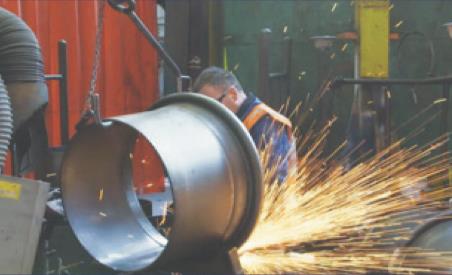
Titan Europe is a global manufacturer of wheels, tyres and undercarriage solutions based in Halesowen.
Over time the business had accumulated a number of different PCs and printers, each with their own costly requirements.
Thick walls throughout the site made simple IT jobs such as cabling difficult, in addition to Wi-Fi signals being unable to penetrate the walls.
Read the full case study19 December 2019

Toshiba’s Enterprise Capacity Hard Drive MG07 Series
CERN’s Large Hadron Collider (LHC) is at the forefront of physics research. The data output from its “Run 1” and “Run 2” phases have already been used to demonstrate the existence of a previously undetected subatomic particle and extend our understanding of the universe and how it formed. Notably in 2012 it confirmed the existence of the Higgs boson.
The scale of CERN is impressive to say the least. From the size of the large hadron collider – a circular particle accelerator with a radius of 4.3 km – to the rate of particle collisions - up to 1 billion particle collisions can take place every second inside the LHC experiment’s detectors. But it is the data that is most impressive, with the collisions generating 1 petabyte (PB) of data per second. Even after fil- tering only the interesting events, the facility requires approxi- mately 10PB of new data to be stored for analysis each month.
Read the full case study







